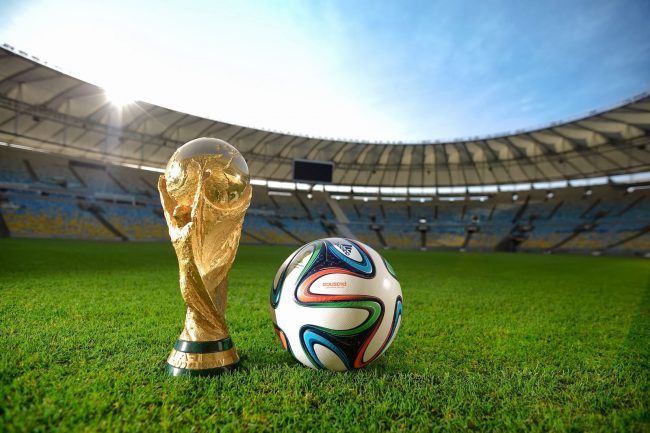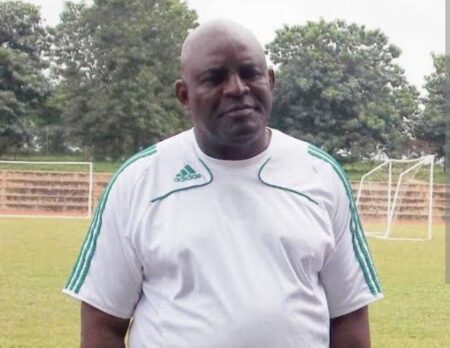Did you watch this week’s episode of The Sports Parliament on the NTA Network service?
If you did not, you missed an opportunity to understand why it was to Nigeria that South Africa came in 1993, immediately after the Apartheid era, to study the dynamics of sports administration in the continent; why South Africa has hosted the Rugby World Cup, the Cricket World Cup, the Football World Cup, AFCON (twice, and struggled to host the next one in 2019), and has been hosting annual international golf, rugby, marathon, netball and other sport events since then and seeking more as if their very survival depends on them; why South Africa now wants to host the Commonwealth Games, the Olympic Games and any games available but once dominated by the more advanced countries in the world.
It was an eye-opening revelation by a Nigerian, a journalist and sports marketer, one that has lived and worked in South Africa with major sports organisations including Supersports for almost two decades.
Emeka Enyadike, an expert in Sports Marketing, started his sports business career in Nigeria before relocating to South Africa, and has now become one of Nigeria’s foremost sports industry ambassadors in Africa.
It was personally refreshing to hear him reel out how Sport has become a major tool and catalyst in the all-round development of South Africa, impacting visibly and significantly in the environment, eco-tourism, medical tourism, infrastructural development, education, the sports industry, engagement and empowerment of the youths, and the wellbeing of the citizens, and more.
That’s what Nelson Mandela saw when he made his famous speech in 1995 that Sport has the power to change the world. It has surely changed South Africa for good, and the evidence is all over the country.
Also Read: Mikel, Nwakeame, Awaziem Join Cardiff City, Aguero, Ozil, Others In Tribute To The Late Sala
Tourism has become one of South Africa’s cash cows driven significantly also by sport.
The irony is that Nigeria (South Africa’s model in 1993) can go back there today and receive useful lessons on how notto appreciate sport, and on how South Africa has succeeded doing so.
In 2030, it will be Africa’s turn again to host the FIFA World Cup, easily the most powerful, most important, most followed and most lucrative (if done properly) single event in the world.
For almost two decades I have personally been screaming at the top of my voice that some countries in West Africa should come together and put up a festival of football that will transform the sub-region in what would potentially be the fastest infrastructural development project in the world using the impact of a sport event.
In 2002 when I first mooted the idea it was considered way ahead of its time in terms of understanding. Mr. Sepp Blatter saw it then, how such an event would impact the entire West Africa and make the World Cup a tool of development for that part of the world, giving poor countries the opportunity to utilize such a powerful tool to develop their environments and their people.
The world now finally sees what I saw then.
In 2026, three countries USA, Canada and Mexico, making up an entire continent, will join forces to host an expanded World Cup of 48 countries.
The eyes of the world can now see the advantages of such joint collaboration between neighbouring countries: sharing the financial burden of hosting such an event, minimising the economic risks, spreading the many benefits, developing the whole region, building regional integration and economies, and so on.
Emeka not only confirmed my position on the importance of hosting such global events but used the experiences of South Africa to buttress it and educate Nigerians.
At the end of the show he moved a motion for Nigeria to lead 5 other West African countries to bid for and to host the 2030 World.
It was music to my ears.
I started to dream immediately.
This is a project that has been close to my heart for almost two decades.
Usually the period from when a country is given the rights to host and when the competition usually starts is 7 years. That means, for 7 years a country embarks on intensive development in virtually all sectors. In this case this extends to a whole region of some projected 300 million people.
In this case, it will be a 10-year period of unprecedented development.
Nigeria will lead the bid. She will be the only automatic qualifier. The other 5 collaborating countries will have to play preliminaries and qualifiers to qualifier to play in the event proper.
48 countries and 12 venues shall be involved.
Nigeria shall present 5 of those venues.
The other venues shall be shared as follows:
Benin – 1; Togo – 1; Ghana – 2; Cote D’Ivoire – 2; Liberia -1.
Nigeria’s 5 venues shall include Lagos and Ogun States, two congruent States that are the gateway into Nigeria on the West African coast.
Between Ogun and Lagos States, undoubtedly two of the richest States in the country, with many of the basic requirements that would be needed to make the championship a practicable and simple, we shall witness the most rapid environmental, economic, cultural and social development in the history of Nigeria.
The other 4 venues in Nigeria shall be bided for and selected not on sentimental reasons but on the basis of the values they will add to the project without creating difficult-to-achieve and expensive challenges.
It can be done.
It will, indeed, be done if we have the political will to do so now!








1 Comment
I saw this write up quite late… I remember back in 2003 when you tried to launch a bid but the Nigerian media practically killed it before it could take off – I remember you struggling to control your exasperation on a particular show when all the presenter was doing was to continue to talk about South Africa! Patriotism aside, I believe that Nigeria CAN host A World Cup and could have hosted a 32-team tournament on its own… For 2030, I think Nigeria can provide up to 10 venues and each of CIV, Ghana, Cameroon, Togo and Benin can provide one venue each. I hope the Nigerian government can take this bid seriously and that Nigerians can be patriotic and determined enough to see this aspiration succeed this time around.